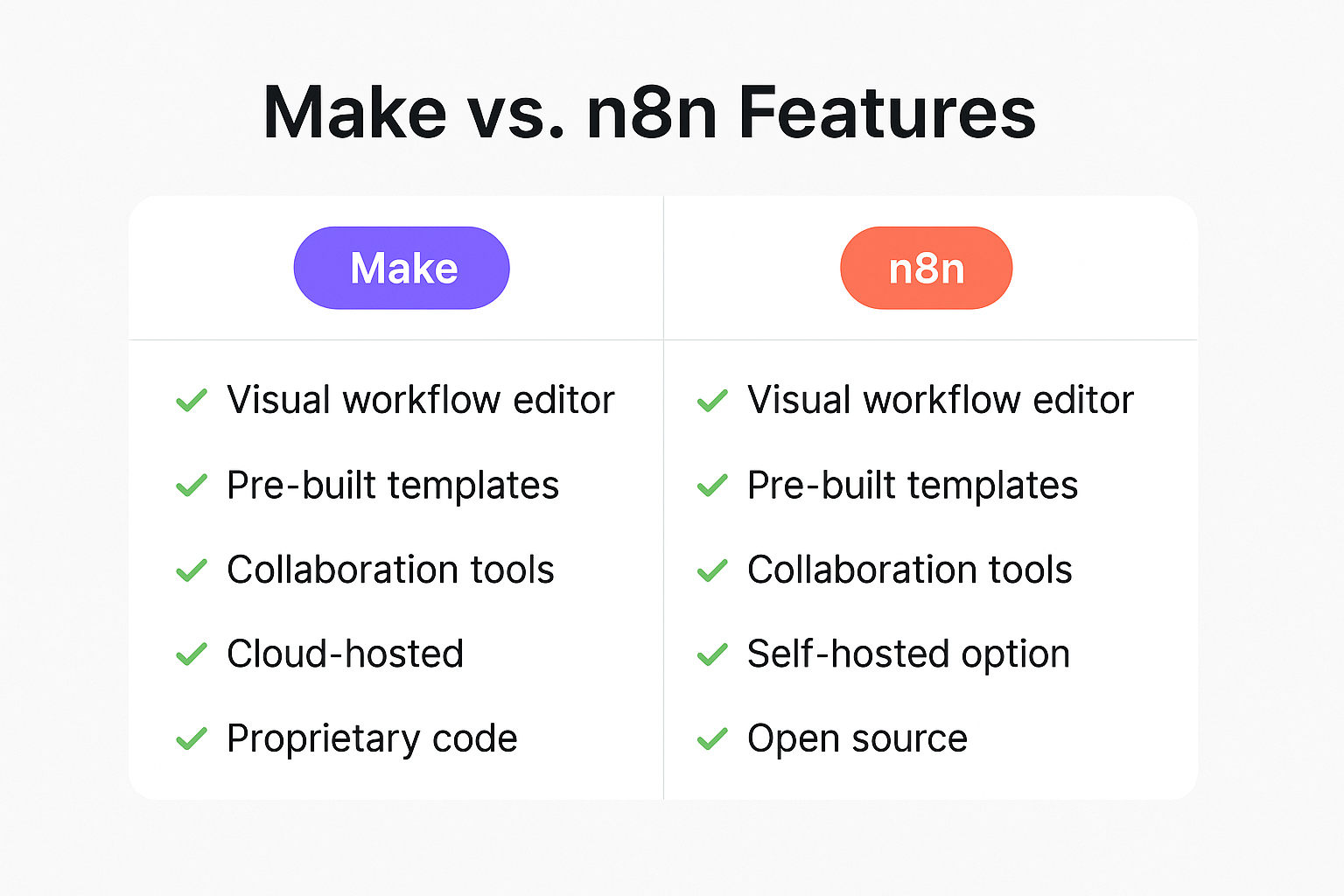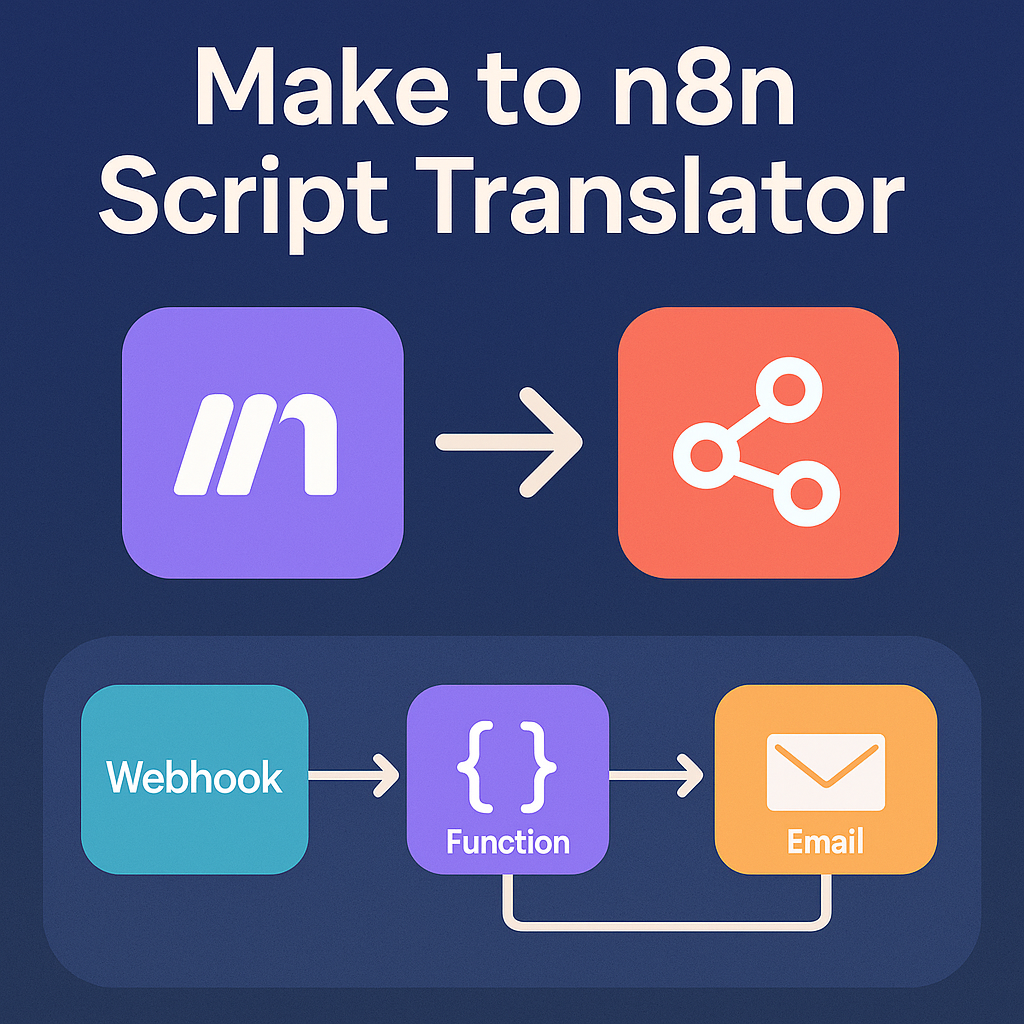Make to n8n Script Translator: A Step-by-Step Guide
Introduction
If you’ve been using Make (formerly Integromat) for workflow automation and want to move to n8n, you’re not alone. Many businesses and creators are switching because n8n is open-source, self-hostable, and highly customizable.
But here’s the challenge: How do you translate your Make scenarios into n8n scripts?
That’s where a make to n8n script translator approach comes in. In this article, we’ll:
- Show you how Make and n8n workflows differ.
- Walk through a step-by-step translation process.
- Share example scripts for clarity.
- Provide pro tips to avoid common migration pitfalls.
Why Move from Make to n8n?
Cost efficiency: n8n is free to self-host.
Flexibility: More control over nodes, functions, and integrations.
Community: Growing ecosystem with open-source contributions.
Scalability: You decide hosting, scaling, and security.

Understanding the Core Difference
- Make: Scenario-based with visual modules and connectors.
- n8n: Node-based with more scripting flexibility (JavaScript functions, expressions).
So the translation is often:
- Make Module → n8n Node
- Make Functions → n8n Function Node/Code Node
- Make Data Transformations → n8n JSON + Set Node
Step-by-Step: Make to n8n Script Translator
Step 1 — Identify Your Make Scenario
Example:
- Trigger: Webhook
- Action 1: Parse JSON
- Action 2: Send email
Step 2 — Map Modules to n8n Nodes
| Make Module | n8n Equivalent |
|---|---|
| Webhook Module | Webhook Node |
| JSON Parse | Function Node |
| Email (Gmail/SMTP) | Email Node |
Step 3 — Build the n8n Script
Example translation:
Make JSON Parse → n8n Function Node
return items.map(item => {
return {
json: {
name: item.json.name,
email: item.json.email
}
};
});Make Email Module → n8n Email Node
Subject: Welcome, {{$json["name"]}}
Body: Hello {{$json["name"]}}, thanks for signing up.
Step 4 — Test the Workflow
Trigger the webhook.
Verify JSON parsing.
Ensure the email arrives correctly.
Example: Complete Workflow
Scenario: Send welcome email when a new signup happens.
In Make: Webhook → JSON → Gmail.
In n8n: Webhook Node → Function Node → Email Node.

Pro Tips for Smooth Translation
- Check rate limits: Some n8n nodes handle throttling differently than Make.
- Use Function Node wisely: Move Make “Set Variables” into JS functions.
- Test incrementally: Don’t translate 10 steps at once—validate step by step
- Backup scenarios: Keep your original Make flows until n8n scripts are tested.
Migrating from Make to n8n doesn’t have to be intimidating. With a make to n8n script translator mindset, you can rebuild workflows in a structured way.
👉 Prefer plug-and-play? Novamind Labs will soon release ready-made agents to ease migration.
👉 Prefer to learn hands-on? Join my upcoming webinar where we’ll walk through Make → n8n migration step by step.
Automation is about saving time—not losing it in migration.
